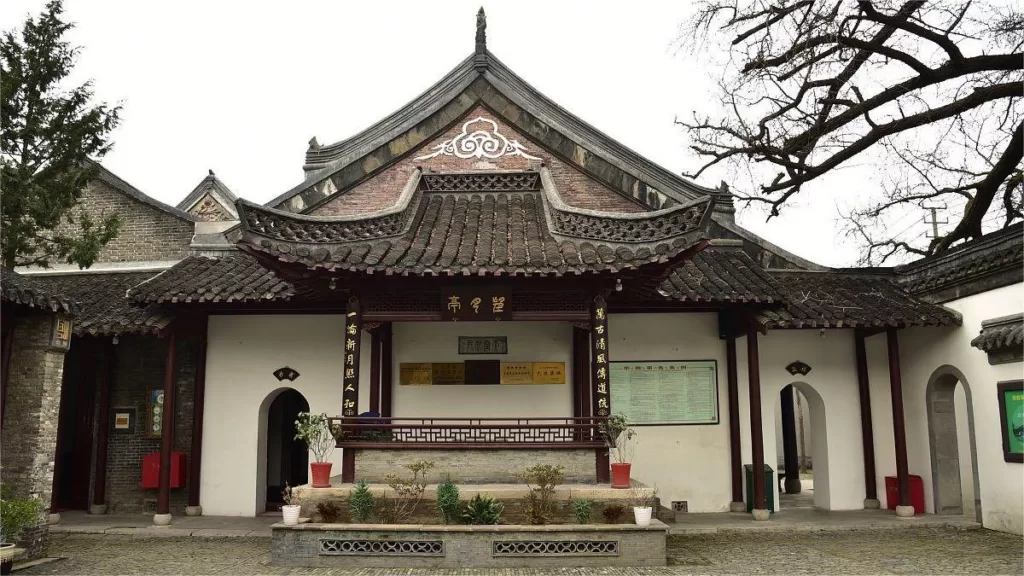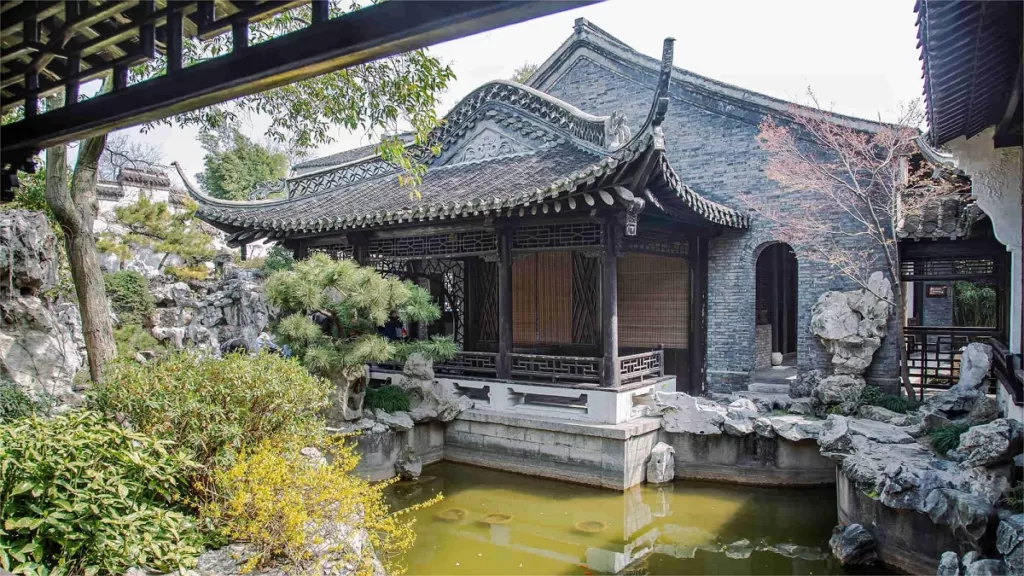The China Grand Canal Museum in Yangzhou (扬州中国大运河博物馆) is a modern comprehensive museum that opened its doors to the public on June 16, 2021. It is a remarkable institution with a total construction area of 79,373.59 square meters. This museum combines artifact preservation, scientific research exhibitions, and leisure experiences, making it a vital hub for understanding the rich history and cultural significance of the Grand Canal of China. The museum houses over 10,000 pieces and sets of cultural relics, spanning from the Spring and Autumn period to contemporary times. These artifacts include ancient texts, calligraphy, stone inscriptions, ceramics, metalwork, and various other items.
The architectural complex of the China Grand Canal Museum is divided into two main parts: the museum itself and the Grand Canal Tower. The overall design of the museum draws inspiration from the architectural style of the Tang Dynasty. It was led by Zhang Jinqiu, an academician of the Chinese Academy of Engineering and the chief architect of the Northwest Institute of Architectural Design in China. The museum’s design is characterized by a massive ship-like structure, incorporating elements of sails, evoking the image of a grand ship about to set sail along the Grand Canal. The Grand Canal Tower, on the other hand, follows the style of Tang Dynasty pagodas, with a height of one hundred meters and accessible through a long corridor built on top of the museum.
Table of Contents
- Basic Information
- Location and Transportation
- Exhibitions in China Grand Canal Museum
- The Grand Canal – A World Cultural Heritage
- Born Because of the Canal – Impressions of Grand Canal Streets
- The Epic Scroll of China’s Grand Canal
- The Forbidden City and the Grand Canal
- Emperor Yang of Sui and the Grand Canal
- World-famous Canals and Canal Cities
- Intangible Cultural Heritage of the Grand Canal
- Vlog about China Grand Canal Museum
- Useful Tips Summarized from Reviews
- Attractions near China Grand Canal Museum
Basic Information
| Website | https://canalmuseum.net/ |
| Estimated Length of TOur | 2 – 3 hours |
| Ticket Price | Free |
| Opening Hours | 9.00 – 17.00; Last admission: 16.00 |
| Telephone Number | 0086-0514-82773088 |
Location and Transportation
The China Grand Canal Museum is located in the southern part of the central area of Yangzhou city, specifically at No. 1 Yunbo Road, Guangling District, Yangzhou, Jiangsu Province, China. To get there, you can take bus 9, 56, 57, or 82 and get off at China Grand Canal Museum North Gate Stop (中国大运河博物馆北门站), or take bus 32, 68, 107, Tourist Line 1, or Tourist Line 2 and get off at China Grand Canal Museum East Stop (中国大运河博物馆东站).
Exhibitions in China Grand Canal Museum
The Grand Canal – A World Cultural Heritage
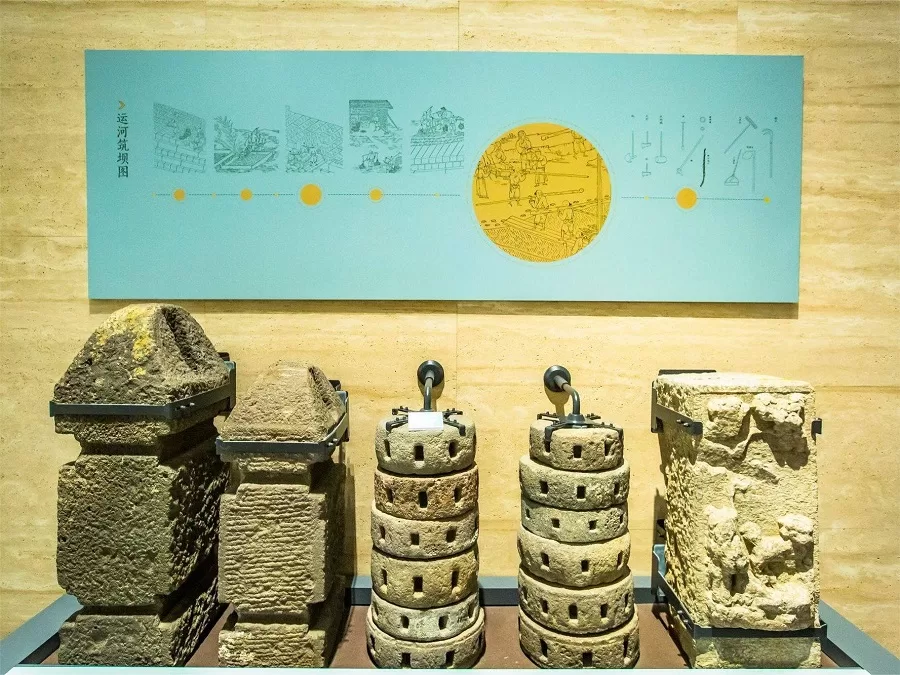
This section provides a comprehensive overview of the historical development and cultural significance of the Grand Canal in China. The exhibition is divided into five parts: “The Grand Canal’s Changes and the Foundation of Dynasties,” “Ingenious Craftsmanship and Chinese Achievements,” “Connecting Nine Provinces and National Prosperity,” “Blessing the World and Livelihood for All,” and “Connecting the Past to the Present and Great Achievements for a Millennium.” These exhibitions highlight the distinctive features of the provinces and cities along the Grand Canal through various means such as relics, auxiliary exhibits, charts, photos, scenes, and models. Furthermore, the exhibition innovatively employs 5G technology to create an immersive experience called “5G+VR|720° Live Broadcast of the Grand Canal,” which offers a panoramic view of the Grand Canal in real time.
Born Because of the Canal – Impressions of Grand Canal Streets
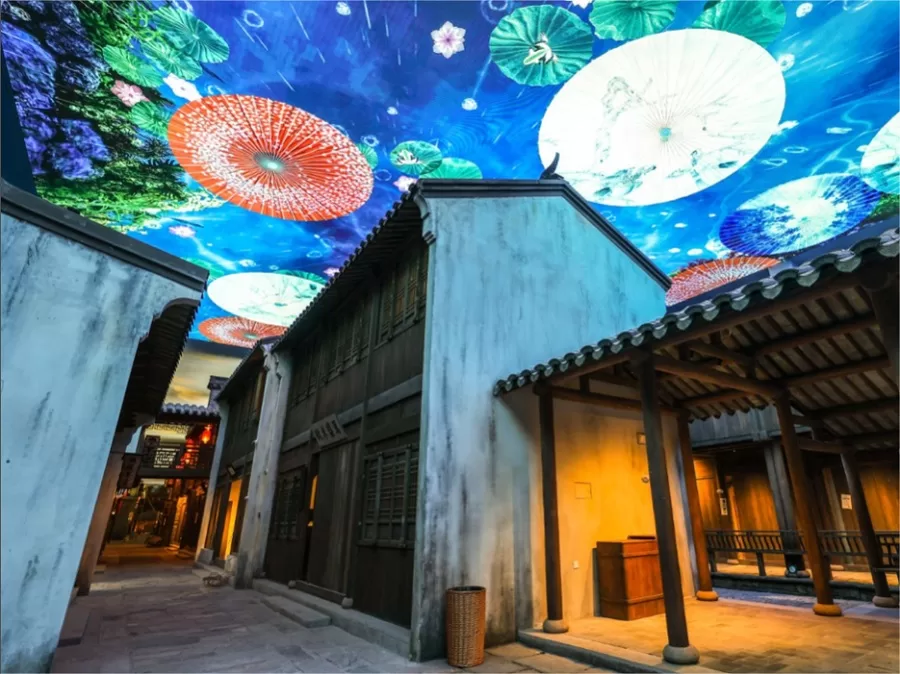
This section presents urban landscapes along the Grand Canal during different historical periods through four segments: “The Flourishing Eastern Capital and Prosperous Bian River,” “Wealth and Abundance in the Capital City,” “The Hub of Transporting Salt and Prosperity of Salt Merchants,” and “Humanistic Jiangnan and the Land of Fish and Rice.” The exhibition “recreates” historical urban scenes and real business formats, allowing visitors to immerse themselves in and interact with the settings.
The Epic Scroll of China’s Grand Canal
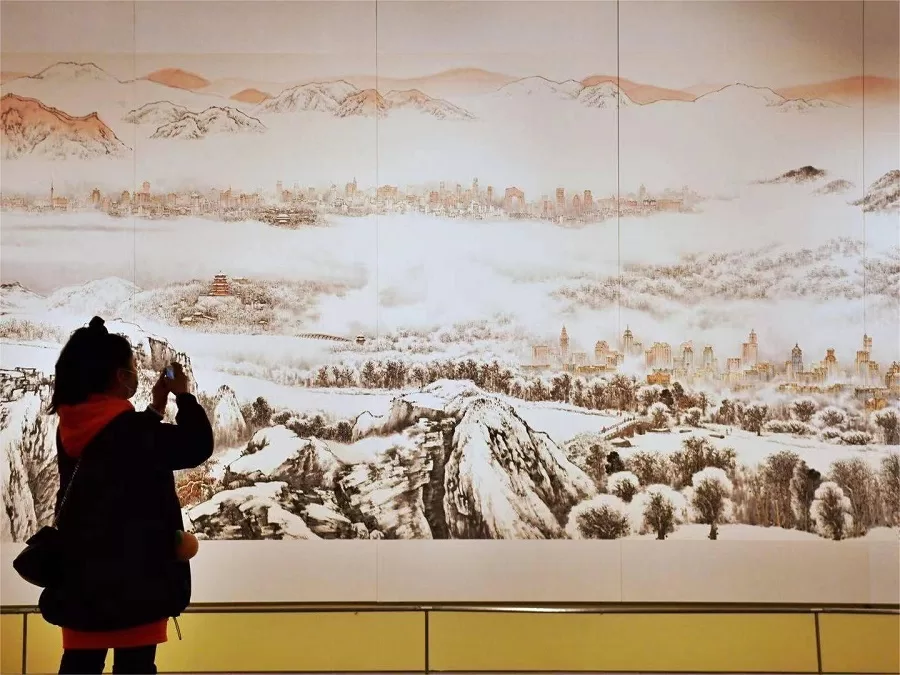
This 135-meter-long and 3-meter-high artwork is a collaboration between 15 painters and calligraphers from eight provinces and cities along the Grand Canal. The scroll, taking a year and a half to create, combines poetry, calligraphy, painting, and printing, portraying the 2,500-year history of the Grand Canal from different dimensions like time, space, culture, and nature. It is divided into two parts: “Great Ancient Achievements of China” and “Brilliant Chapters of the New Era,” showcasing the history of the canal’s excavation and development and its four-season natural beauty and prosperity.
The Forbidden City and the Grand Canal
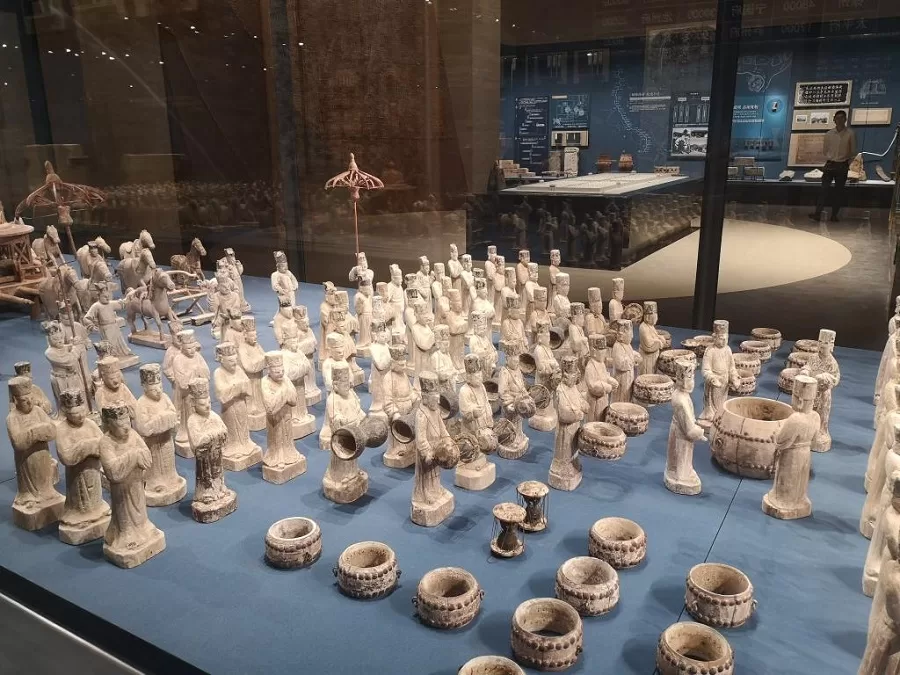
This section explores the close relationship between the Forbidden City (Imperial Palace) in Beijing and the Grand Canal. Over different historical periods, the Grand Canal played a vital role in supplying various materials to the Forbidden City, especially during the Yuan, Ming, and Qing dynasties. The exhibition is divided into two parts: “Goods Flowing to the Forbidden City from the Grand Canal” and “The Gathering of Treasures in the Palace City.” It highlights the connections between the Forbidden City and the Grand Canal and presents the lifestyles of the Qing Dynasty’s royal court with ceramics, lacquerware, and jade ware from the Palace.
Emperor Yang of Sui and the Grand Canal
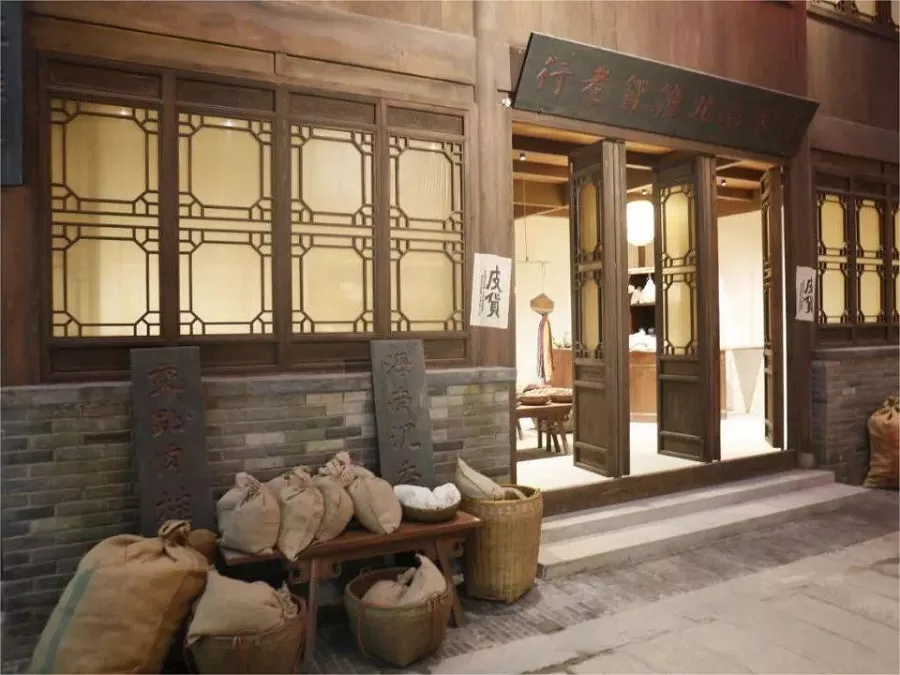
This section delves into the historical ties between Emperor Yang of the Sui Dynasty, Yangzhou, and the Grand Canal. The exhibition uses artifacts and text boards to tell the story of Emperor Yang, from his early days as the Prince of Jin, his rule in Yangzhou (then called Jiangdu), to his ascension to the throne and his ultimate downfall, where he perished overnight, leading to the fall of the Sui Dynasty. The exhibition also objectively showcases the Sui Dynasty’s historical achievements, including the revitalization of culture and education, the excavation of the canal, and reforms in rituals and music. It reevaluates the planning, construction, and profound influence of the Sui Dynasty’s Grand Canal on later generations.
World-famous Canals and Canal Cities
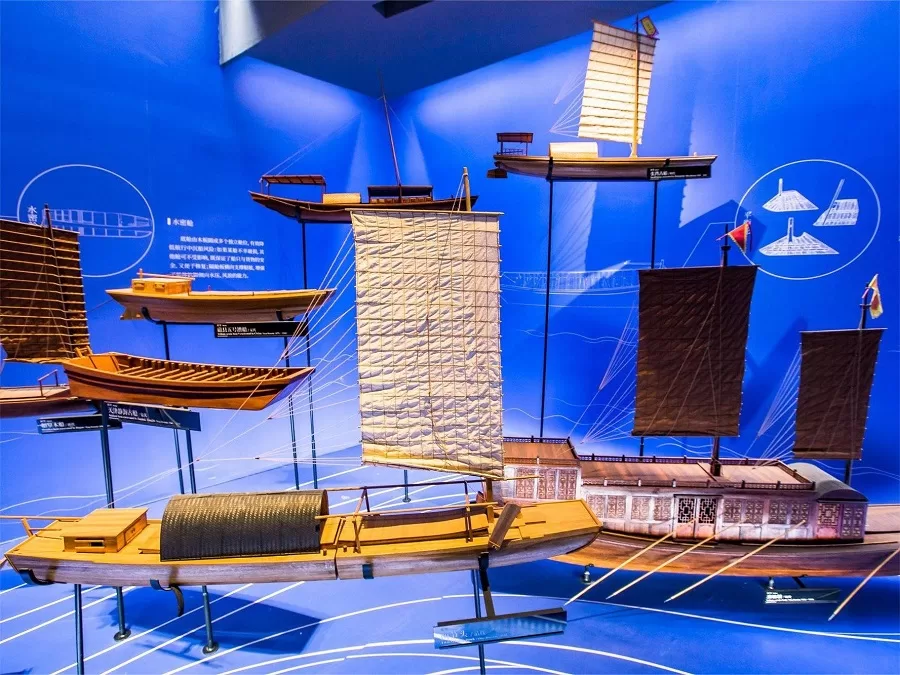
This section explores the origins of world canals, using the canal as the link and canal cities with common canal cultural genes and identities as the main theme. It delves into three aspects: world heritage, hydraulic wisdom, and urban culture. The exhibition includes 15 representative canals, including six world heritage canals, to highlight the cultural value of canals. It also explains the role of hydraulic structures such as dams, tunnels, and locks in bridging canals and cities, emphasizing the human wisdom involved in their design, construction, and management.
Intangible Cultural Heritage of the Grand Canal
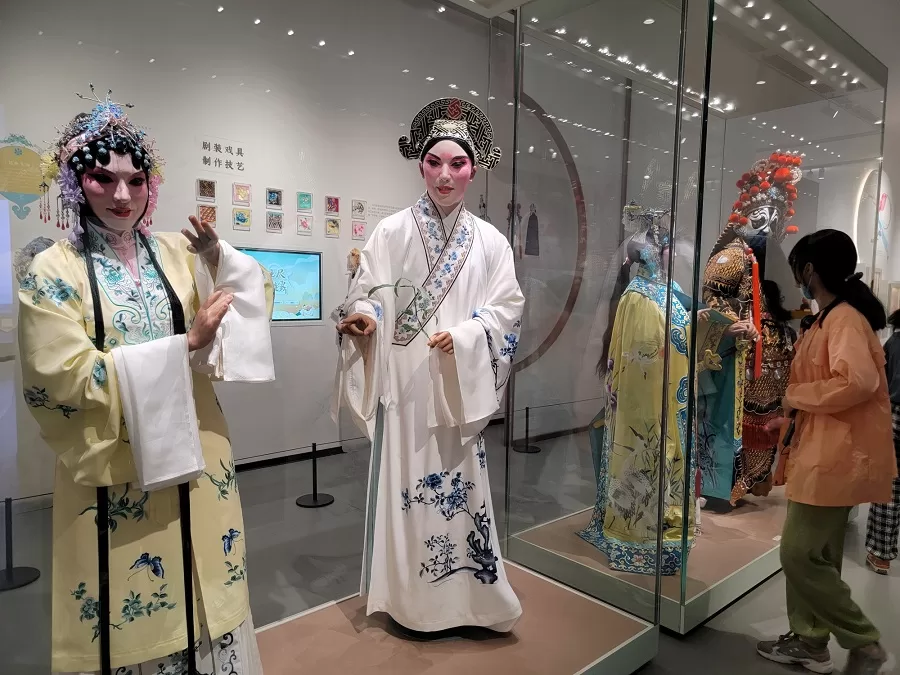
This exhibition is divided into three parts. The first part, “Harmonious Melodies,” features traditional music, folk art, and theater from both sides of the Grand Canal. The making of musical instruments, costumes, and shadow puppets is also on display. The second part, “Naturally Crafted,” showcases the beauty of traditional arts and crafts, including woodblock printing of New Year pictures, boat carving, and Suzhou embroidery, with artisans demonstrating these techniques in the central area. The third part, “Folk Customs and Festivities,” offers an immersive audio-visual experience where visitors can learn about various festive traditions along the Grand Canal.
Vlog about China Grand Canal Museum
Useful Tips Summarized from Reviews
Convenient Services: On the first floor, you can store your luggage and borrow children’s pushchairs. Take advantage of these services to make your visit more comfortable.
Pre-booking Advised: It’s advisable to make reservations in advance. Booking in advance, at least three days prior (up to 7 days in advance), is recommended to secure your spot.
Recommended Visiting Route: Consider starting your visit from the upper floors and gradually moving down. This strategy helps avoid crowds, providing a more comfortable and immersive experience.
Alternative Parking Options: If the museum’s parking lot is full, there is a spacious and free parking area nearby. It’s approximately a 5-6 minute walk from the museum’s main entrance.
Scenic Rooftop Garden for Photography: Don’t miss the rooftop garden, which offers an excellent vantage point for capturing beautiful photos, particularly of the Grand Canal Tower.


